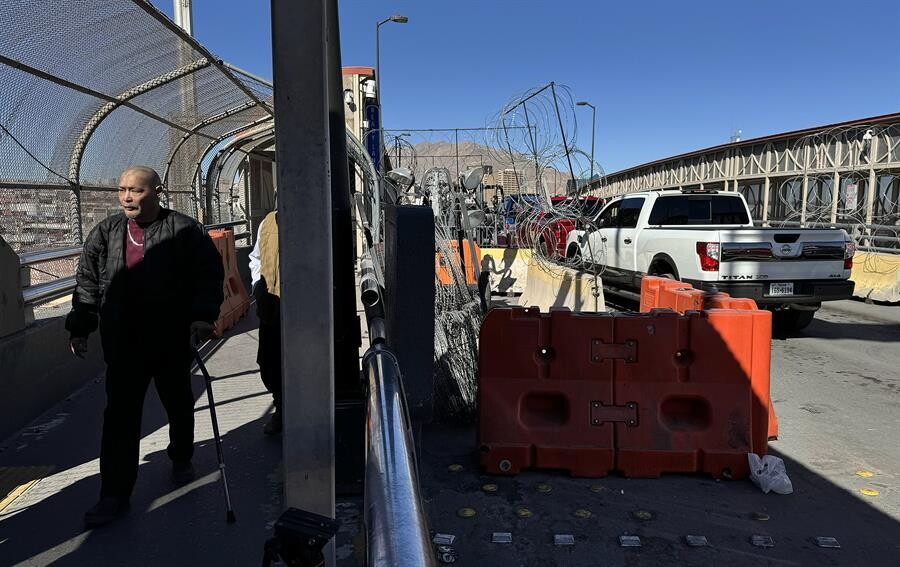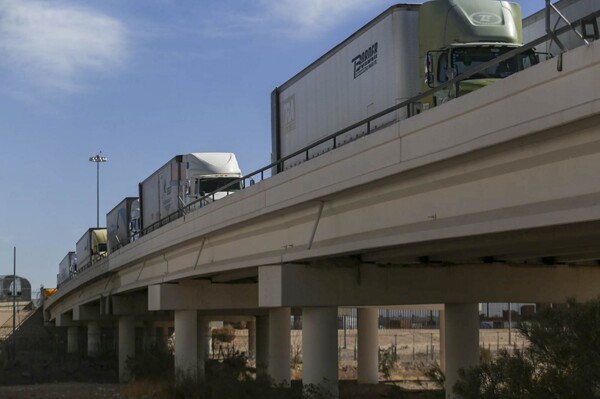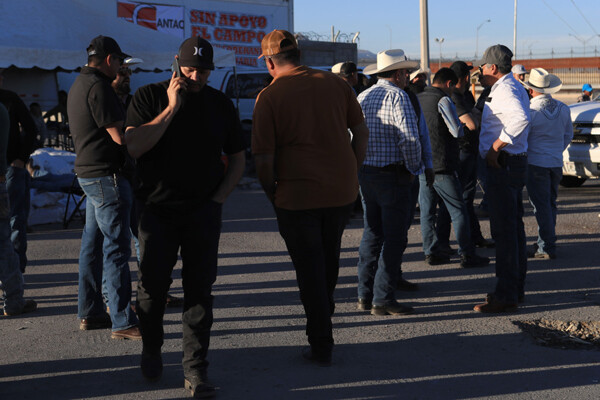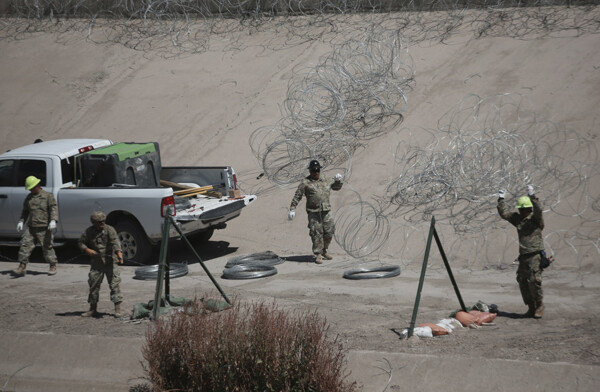
Traders and consumers in the Mexican city of Juárez, one of the main border crossings with the United States, are starting to feel the impact of the announced 25% increase in tariffs imposed by U.S. President Donald Trump, which has generated great uncertainty and fear in the country.
"If things are going to go up over there, then there won't be work here anyway. Everything that crosses here will be very expensive already," reflects Delfina Vargas, a local trader. Vargas, who sells clothing, footwear, and household items, comments that the new fee will make fewer people cross the border to purchase products, which will reduce her income.
The economic impact also extends to factories, a crucial sector in the economy of Juárez, a locality of more than 1.5 million inhabitants heavily dependent on exports to the neighboring country to the north. Delfina Vargas expresses her concern: "Jobs are also becoming scarce. It will make our cost of living higher."
María Rivas, a U.S. citizen who travels weekly to Juárez to buy essential products, warns about the price increase: "Everything will increase in value. So it's worth it for me to come to Juárez and buy my medicines." Rivas fears that with the tariff increase the price difference will diminish and that buying Mexican products will no longer be as convenient for many U.S. residents.
Trump's decision has sparked a debate over who will be most affected by the measure. While some believe that the greatest impact will be felt in the United States due to the rising costs of essential products, others believe that Mexico will suffer more from job losses and the reduction of cross-border trade.
Meanwhile, Mexican President Claudia Sheinbaum proposed a working group between both countries to jointly address the fentanyl crisis, one of the reasons put forward by the U.S. president for increasing tariffs on Mexican products. Sheinbaum announced a Plan B that would include "tariff and non-tariff measures."
Uncertainty looms over the future of the area, as the trade relationship between Juárez and El Paso is one of the most active along the U.S.-Mexico border, with thousands of people crossing daily in both directions to purchase products, work, or visit family.














